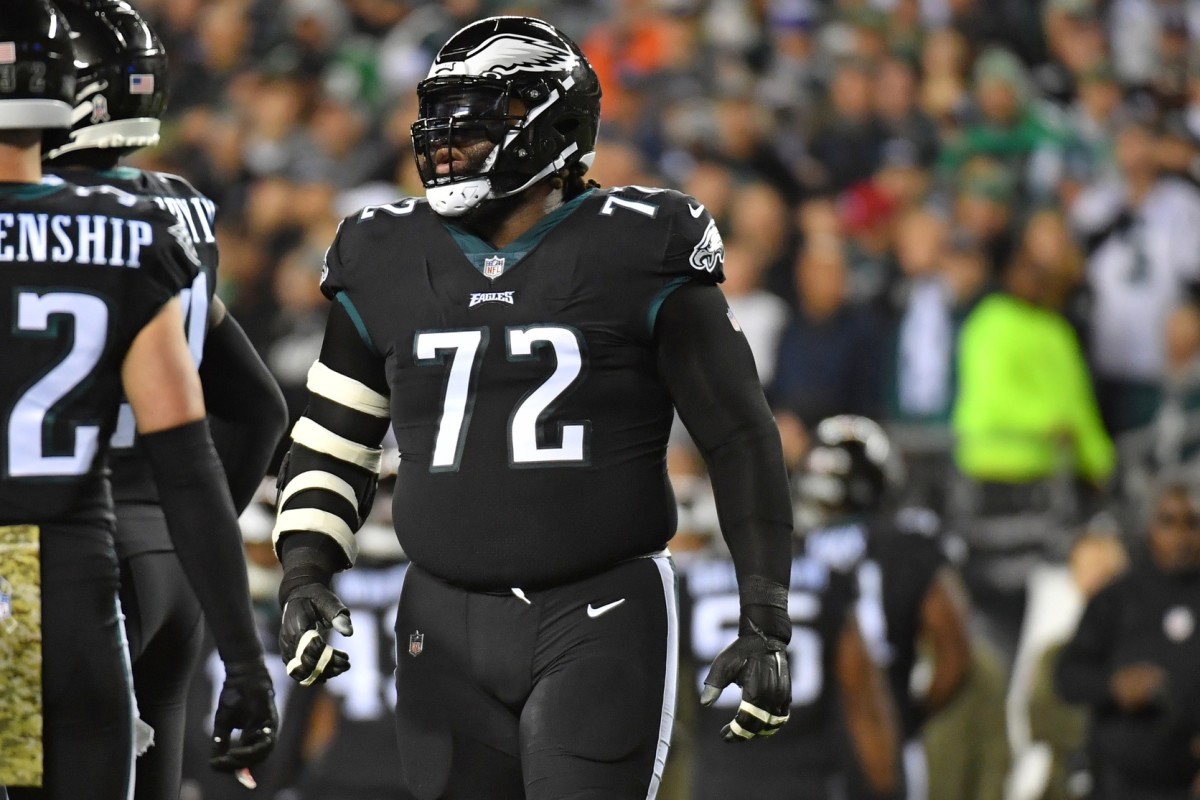The NFL Has Entered the Golden Age of the Mercenary Veteran Contract
If you’re still breathlessly following Odell Beckham Jr.’s version of As The World Turns, you may have missed this: We’re in the golden age of the mercenary veteran contract, and whether or not the most recognizable unsigned name in the sport inks a deal, the entire cottage industry of talented veteran players may have changed forever.
Not surprisingly—at least in modern times—we’re focusing on something innovative coming out of the front offices of the Eagles and Howie Roseman. Philadelphia’s general manager signed both Linval Joseph and Ndamukong Suh just before Thanksgiving. Here’s what is noteworthy about those moves, which may seem sensible to the layperson running a business but sent ripples throughout the typically callous and cash-strapped NFL:

• The moves were a direct response to player need: The Eagles lost first-round defensive tackle Jordan Davis at the beginning of the month. That left Fletcher Cox (32 years old) and Javon Hargrave (29) to pick up an incredible amount of unsexy, physical work in the trenches over the course of Davis’s absence.
• The contracts were structured in a way that acknowledges the realities of the situation. For example, deep into Joseph’s deal—Sports Illustrated obtained a copy—we find these two paragraphs:
(A) If Player participates in 30% or more of Club’s total defensive plays (excluding special teams plays) over Club’s remaining eight (8) games of the regular season of the 2022 League Year, then Club agrees to pay Player the additional amount of $125,000 (One Hundred Twenty-Five Thousand Dollars) for each playoff game during the 2022 League Year in which (i) Club wins such game and (ii) Player is on Club’s Active/Inactive List or Reserve/Injured List for such game, regardless of Player’s playtime participation in such game; OR
(B) If Player does not participate in 30% or more of Club’s total defensive plays (excluding special teams plays) over Club’s remaining eight (8) games of the regular season of the 2022 League Year, then Club agrees to pay Player the additional amount of $125,000 (One Hundred Twenty-Five Thousand Dollars) for each playoff game during the 2022 League Year in which (i) Club wins such game and (ii) Player participates in 30% or more of Club’s total defensive plays (excluding special teams plays) for such game.
So, basically, the Eagles are saying: We know we’re going to the playoffs, and we’re going to need you to do a lot of run-stuffing during the regular season to help us get a bye. So for that duty, we will reward you with additional money (Joseph has hit the playing-time threshold in each of his games thus far, according to snap counts made available by the NFL). Basically, we’ll give you this money even if we face some pass-heavy teams in the playoffs that renders you useless.
Or, if we end up facing a bunch of pass-heavy teams during the regular season and end up not needing you, we’ll still give you that money if you play a handful of snaps in a playoff game. Either way, there’s a pretty good chance you’re walking away with an extra $125,000 for two months of work.
• Most of the deals signed by T.Y. Hilton, Joseph, Suh and Brandon Williams, the longtime standout defensive tackle the Chiefs signed at the end of November, contain some modicum of guaranteed money, which is rare for a signing at this point in the year. The contracts, such as Joseph’s deal, include incentives that are structured not just for a set number of games or for some rigid play-time structure that can cause cynicism if a player is being wedged into a role but, ultimately, screwed out of the play-time incentives because of a schematic shift or change in need.
It shows that GMs such as Roseman are willing to pay for playoff success, which, in turn, could shape these deals as more of a standard moving forward. And, indeed, if that’s the case, it will undoubtedly motivate more players who are older and play pivotal positions to wait and see who will offer them a chance to have a postseason experience without putting their body and family through the rigors of a training camp and the slog of the early season.
Many older players want to continue playing, but the equation becomes less and less sensible when they get squeezed for every dollar, paid at a rate far below their level of experience and forced to perform consistently to attain those incentives as if they are rookies again. But if teams normalize the practice of offering (somewhat, we don’t want to make these NFL teams seem too overly benevolent and generous, after all) sensible and attainable deals with chunks of guaranteed money, we could see more of them willing to participate. And we could see more teams fielding miniature veteran Pro Bowl teams and more GMs getting serious about Super Bowl bids. In the end, isn’t that a win for everybody?
